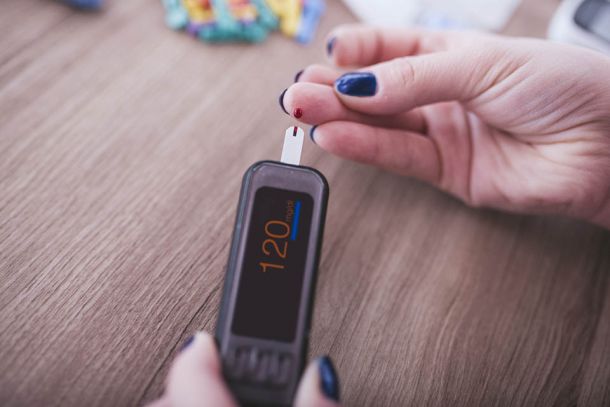Gestational diabetes puts your baby at risk and can affect your future health, be sure to get checked.

Gestational diabetes – the presence of high blood sugar during pregnancy, beyond what is expected as a normal hormonal change of pregnancy - is usually diagnosed between the 24th and 28th week of pregnancy through the glucose challenge test. Gestational diabetes can put a baby at risk for excessive birth weight (which can lead to labour complications and interventions such as Caesarean section), low blood sugar levels after birth and excess levels of insulin in the blood. Babies born to mothers with gestational diabetes are also at higher risk for long-term obesity and glucose intolerance. You will likely be referred for further management. In our own centre (like most major centres) we have a multi-disciplinary specialty clinic with Physicians (Endocrinologist, Maternal-Fetal Medicine specialist), a dietitian and a diabetic educator.
Women who are diagnosed with gestational diabetes are at an increased risk of developing type II diabetes in the future. Lifestyle changes such as increased activity and healthy nutritional choices can often be enough to manage gestational diabetes. In other cases, insulin will be required.
Gestational Diabetes Resource
If you have been diagnosed with gestational diabetes, the resource pamphlet that can be downloaded below is designed to support you during your pregnancy, alongside the care that you receive from your physician.
Risk Factors for Gestational Diabetes
Some women may develop gestational diabetes with no previous risk factors, for others, certain pre-existing conditions may make them more susceptible, such as:
- Pre-pregnancy obesity
- Family history of diabetes
- Previous pregnancy with gestational diabetes
- Being of high-risk ethnic descent: Aboriginal, Hispanic, South Asian, Asian and African
- Previous birth of baby over 9 pounds
- History of polycystic ovary syndrome (PCOS)
Commonly asked questions
Q. Do I have to do the glucose test?
A. No. However, most governing bodies like the Society for Obstetricians and Gynaecologists of Canada (SOGC) and the American College of Obstetricians and Gynaecologists (ACOG) recommend routine screening. There are two reasons I tell women to have the tests:
- We know that if you are found to have gestational diabetes, referring you for further follow up and management (typically just dietary control and monitoring) can improve the chances your baby will grow normally (not inappropriately big) and will not require special monitoring after delivery.
- Pregnancy is essentially a stress test. What happens during your pregnancy may indicate that you are at increased risk for future health issues. Therefore, from a future health point of view for health preservation and disease prevention, if you had either of these conditions you should have a follow up test in order to identify whether you actually have type II diabetes. It should also be considered an eye-opener for you…you can decrease your chances of developing type II diabetes by becoming physically active, eating right and losing weight.
